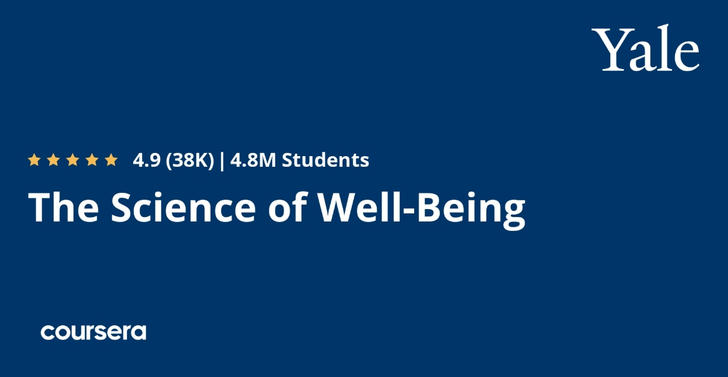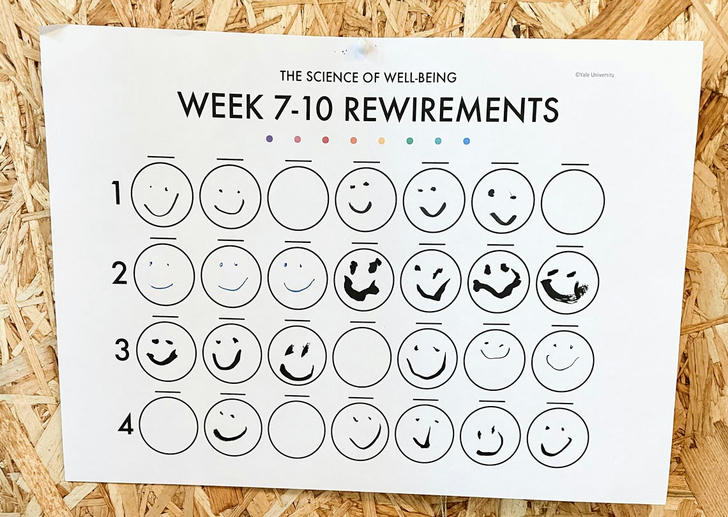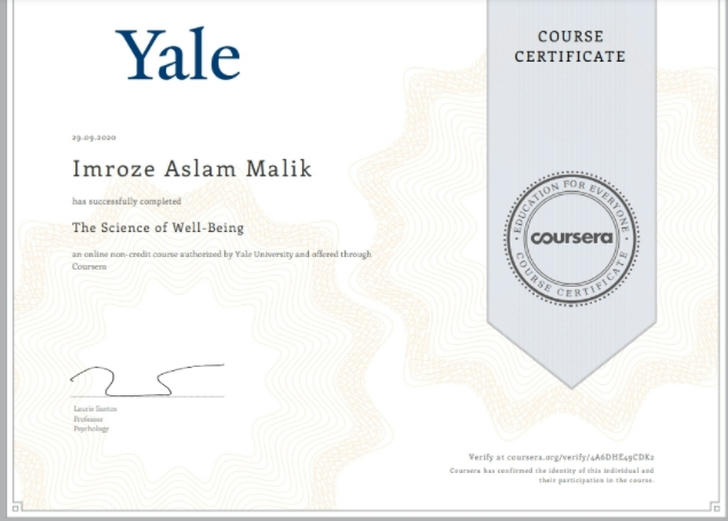The Science of Well-Being: Yale’s Free Course That Can Change Your Life
In a world where stress, anxiety, and the pursuit of happiness dominate our lives, understanding well-being has become more important than ever. Yale University’s "The Science of Well-Being," one of the most popular free online courses available, offers a unique opportunity to explore the psychology behind happiness and learn actionable strategies to lead a more fulfilling life. Developed by Dr. Laurie Santos, a Yale psychology professor, this course equips individuals with scientifically-backed tools to improve their overall sense of well-being.

What Is Yale’s “The Science of Well-Being”?
Originally a campus favorite at Yale, "The Science of Well-Being" is now accessible to everyone through Coursera. The course, designed to be completed in approximately 10 weeks, combines video lectures, readings, and practical exercises. It targets individuals from all walks of life who are interested in enhancing their happiness and understanding the psychological principles that underpin well-being.
The course is structured to be flexible, allowing learners to progress at their own pace. This makes it ideal for busy professionals, students, or anyone looking to improve their quality of life. With no prior psychology knowledge required, the course welcomes beginners and seasoned learners alike.
Key Topics Covered in the Course
The course delves into several intriguing aspects of happiness and well-being, including:
1. Common Misconceptions About Happiness
Many of us hold false beliefs about what will make us happy. This section debunks myths such as "more money equals more happiness" and highlights why certain societal measures of success often fall short of delivering true fulfillment.
2. The Science of Gratitude and Kindness
Research shows that practicing gratitude and engaging in acts of kindness significantly enhance mental health. This module explores how simple gestures like writing a thank-you note or helping a stranger can lead to lasting happiness.
3. Overcoming Negative Biases
Our minds often dwell on the negative, but this section provides strategies to reframe thoughts and focus on positive aspects of life. Techniques like mindfulness and cognitive restructuring are discussed in depth.
4. Building Better Habits
Lasting change requires consistent effort. This module teaches how to form positive habits through small, incremental changes that are easier to sustain.
5. The Role of Social Connections
Relationships play a crucial role in our happiness. This section emphasizes the importance of meaningful connections and how fostering them can boost well-being.
The Practical Elements: How It Helps You Build a Happier Life
What sets "The Science of Well-Being" apart is its focus on practical application. The course isn’t just theoretical; it’s designed to help you implement changes in your daily life. Each week, learners are given assignments that include:

●Gratitude Journaling: Reflecting on things you’re thankful for.
●Mindfulness Exercises: Practicing presence and awareness to reduce stress.
●Acts of Kindness: Performing small gestures that benefit others.
These tasks encourage self-reflection and promote behavioral changes, making happiness an achievable goal rather than an abstract concept. The emphasis on practical exercises ensures that learners don’t just understand the science of happiness but actively practice it.
Why Take This Course?
There are numerous reasons to enroll in "The Science of Well-Being":
●Accessible to Everyone: The course is free and available online, eliminating financial and geographical barriers.
●Scientifically Backed: With content based on rigorous psychological research, the course provides credible and reliable insights.
●Popular and Impactful: It’s one of the most enrolled and highly rated courses on Coursera, with thousands of positive testimonials.
●Flexible Learning: Self-paced structure allows you to fit it into your schedule easily.
How to Enroll in “The Science of Well-Being”
Getting started is simple. Follow these steps:
1.Visit the Coursera website.
2.Search for "The Science of Well-Being."
3.Create a free account or log in if you already have one.
4.Enroll in the course and start learning.
To make the most of the course, set aside dedicated time each week, actively participate in assignments, and share your progress with others for added accountability.

Obtaining a Certificate: How to Showcase Your Achievement
While the course is free, learners also have the option to earn a certificate upon completion. This certificate can be a valuable addition to your resume or LinkedIn profile, demonstrating your commitment to personal development and well-being. To receive the certificate, you need to complete all course assignments and pass any assessments. Though there is a fee associated with obtaining the official certificate, the course content remains accessible for free. The certificate serves as a formal acknowledgment of your understanding of the principles of well-being and your dedication to improving your life, offering you a tangible recognition of your effort and growth.
Real-Life Impact: Testimonials and Success Stories
Countless learners have shared how "The Science of Well-Being" transformed their lives. For example, Jason noted that the gratitude journaling exercises helped them appreciate the small joys in their daily routine, leading to a noticeable improvement in their mood. Ann shared how the focus on building habits allowed them to make sustainable changes, such as incorporating daily exercise and meditation into their life.
These stories illustrate the course’s potential to create real and lasting change, inspiring others to take the first step towards a happier, more fulfilling life.
Conclusion: Why This Course Is Worth Your Time
Yale’s "The Science of Well-Being" is more than just a course; it’s an opportunity to transform your understanding of happiness and well-being. By combining scientific research with practical applications, it equips learners with the tools to lead a more joyful and meaningful life. Whether you’re looking to improve your mental health, build better habits, or simply understand what makes you happy, this course offers invaluable insights.
Take advantage of this free resource and begin your journey to well-being today. Happiness isn’t just a destination; it’s a science you can learn and practice.
